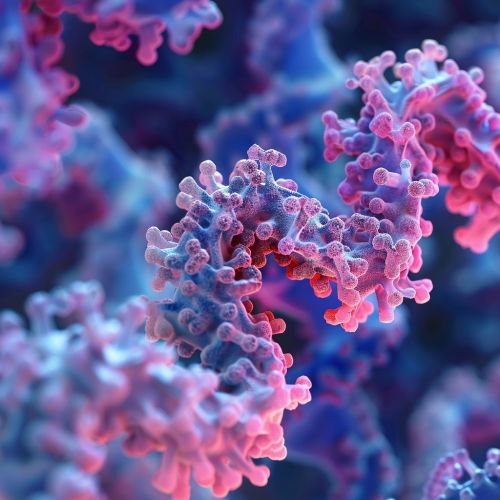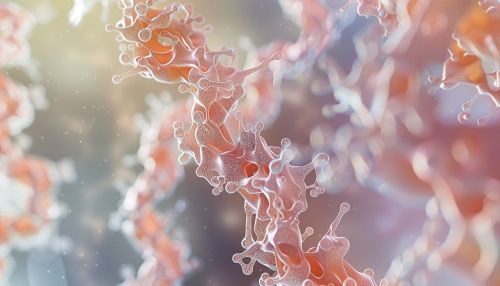Anfinsen's dogma
Introduction
Anfinsen's dogma, also known as the Thermodynamic hypothesis, is a fundamental principle in the field of Protein folding. Named after the American biochemist Christian B. Anfinsen, the dogma postulates that, in a given set of environmental conditions, a protein's three-dimensional structure is determined solely by its amino acid sequence.


Historical Background
Christian B. Anfinsen, the scientist behind Anfinsen's dogma, was a prominent figure in the field of Biochemistry. His work on ribonuclease, a type of Enzyme, led to the formulation of this dogma. Anfinsen was awarded the Nobel Prize in Chemistry in 1972 for his work on protein folding, underscoring the significance of his contributions to the field.
The Dogma
Anfinsen's dogma is based on two key assumptions. The first is that a protein's native conformation has a global minimum free energy in the given environment. The second assumption is that any given protein can spontaneously achieve this minimum energy conformation without the need for external guidance or energy input.
Experimental Evidence
Anfinsen's dogma was supported by a series of experiments conducted by Anfinsen himself on the enzyme ribonuclease. By denaturing the protein and then allowing it to renature, Anfinsen demonstrated that the protein could refold into its native structure spontaneously, supporting the idea that the amino acid sequence was sufficient to determine the protein's structure.
Implications and Applications
The implications of Anfinsen's dogma are far-reaching, particularly in the fields of Molecular biology, Genetics, and Biotechnology. The dogma provides a theoretical foundation for understanding protein folding and misfolding, which has implications for numerous diseases, including Alzheimer's disease and Parkinson's disease. In biotechnology, the dogma informs the design and production of recombinant proteins.
Limitations and Controversies
Despite its wide acceptance, Anfinsen's dogma is not without its limitations and controversies. Some proteins require the assistance of other proteins, known as chaperones, to fold correctly. Moreover, certain conditions can lead to protein misfolding, resulting in diseases such as Alzheimer's and Parkinson's. These observations suggest that factors beyond the amino acid sequence can influence protein folding.
